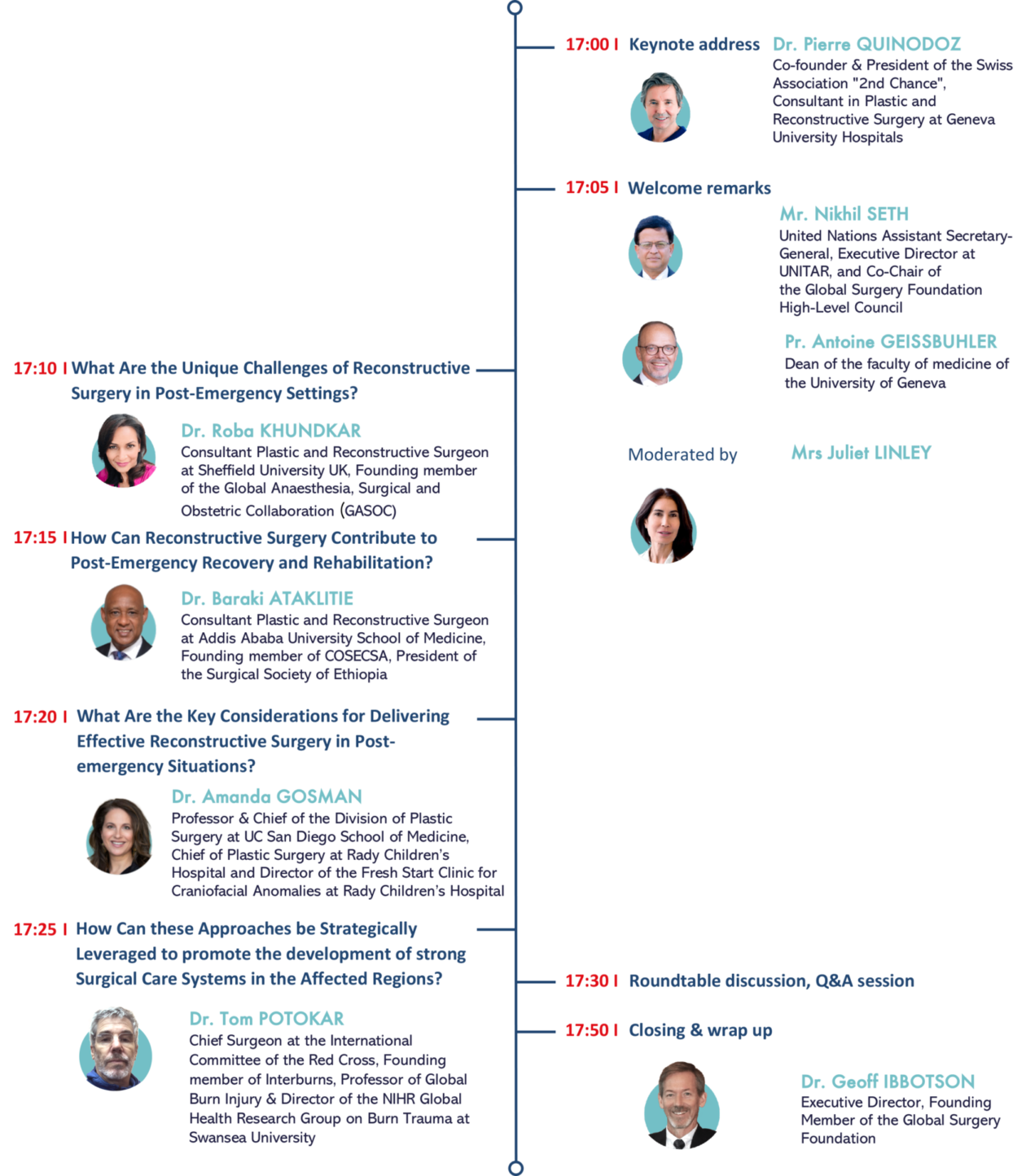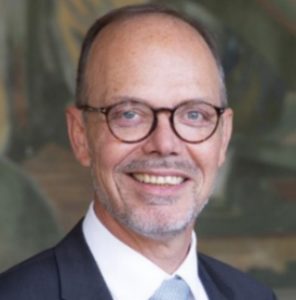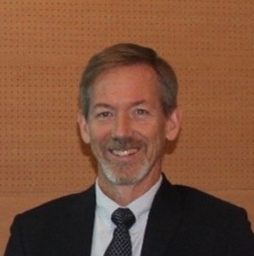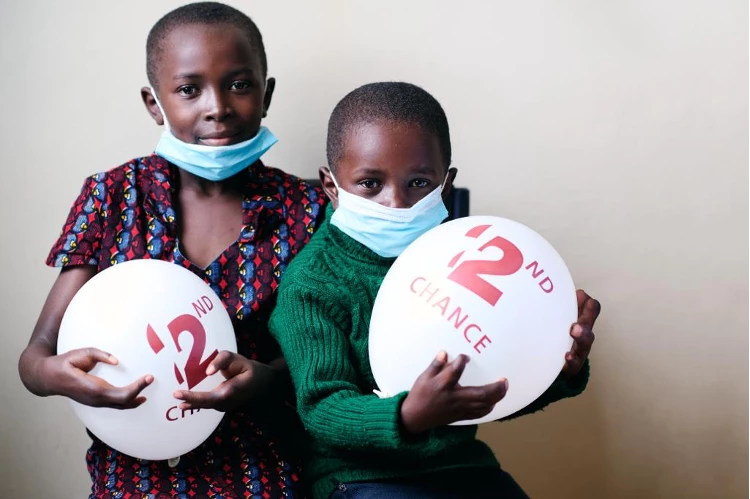The 2nd CHANCE Association in collaboration with the Global Surgery Foundation and UNITAR will host a special online event entitled:
Why reconstructive surgery belongs to the humanitarian response in post-conflict and disaster emergencies.
The necessity for an internationally recognized and coordinated response to deploy reconstructive surgery and establish robust health systems following conflicts and disasters is urgent.
Background
According to open sources, there were 50,783 deaths, 297 missing and 107,204 injured across 11 of the 17 affected provinces of Turkey due to the earthquake in February 2023.
Programme

Guiding questions
• Challenges: What Are the Unique Challenges of Reconstructive Surgery in Post-Emergency Settings?
• Impact: How Can Reconstructive Surgery Contribute to Post-Emergency Recovery and Rehabilitation?
• Needs: What Are the Key Considerations for Delivering Effective Reconstructive Surgery in Post-emergency Situations?
• Strengthening health systems: How Can these Approaches be Strategically Leveraged to promote the development of strong Surgical Care Systems and the overall Healthcare System in the Affected Regions?
Event objectives
1. Share experiences and lessons learned by creating a space for discussion and exchange of experiences among experts in reconstructive surgery and health systems.
2. Raise awareness of the challenges to provide reconstructive surgery care in a timely manner, and the challenges and opportunity to align interventions with a view towards building strong health systems.
3. Promote the need to reinforce and train local healthcare providers and to build a network of professionals ready to support in post-emergency situations.
4. To foster collaboration and networking: This meeting provides a unique opportunity to meet and collaborate with renowned experts in the field of reconstructive surgery. We strongly encourage participants to connect, share contacts, and explore opportunities for future collaboration to advance our common domain.
Learning objectives
After the event, participants will be able to:
• Understand the current challenges and opportunities related to reconstructive surgical care.
• Recognise the link between providing reconstructive surgery post emergencies and strengthening the health system.
• Identify the main challenges for implementing training programmes.
• Expand their networks and identify partners with expertise in reconstructive surgery care in post-emergency settings.
Target audience
Clinicians, civil society, government officials, and personnel from non-profit and private sectors who work on, are impacted, or interested in learning more about reconstructive surgery in post-emergency situations, and health systems strengthening.
Format
The webinar will follow a moderated panel discussion style, lasting for 60 minutes. The format involves short 5-minute presentation by each guest speaker to set the scene, with the remaining time dedicated to a moderated discussions among panelists, with additional questions sourced from the audience.








